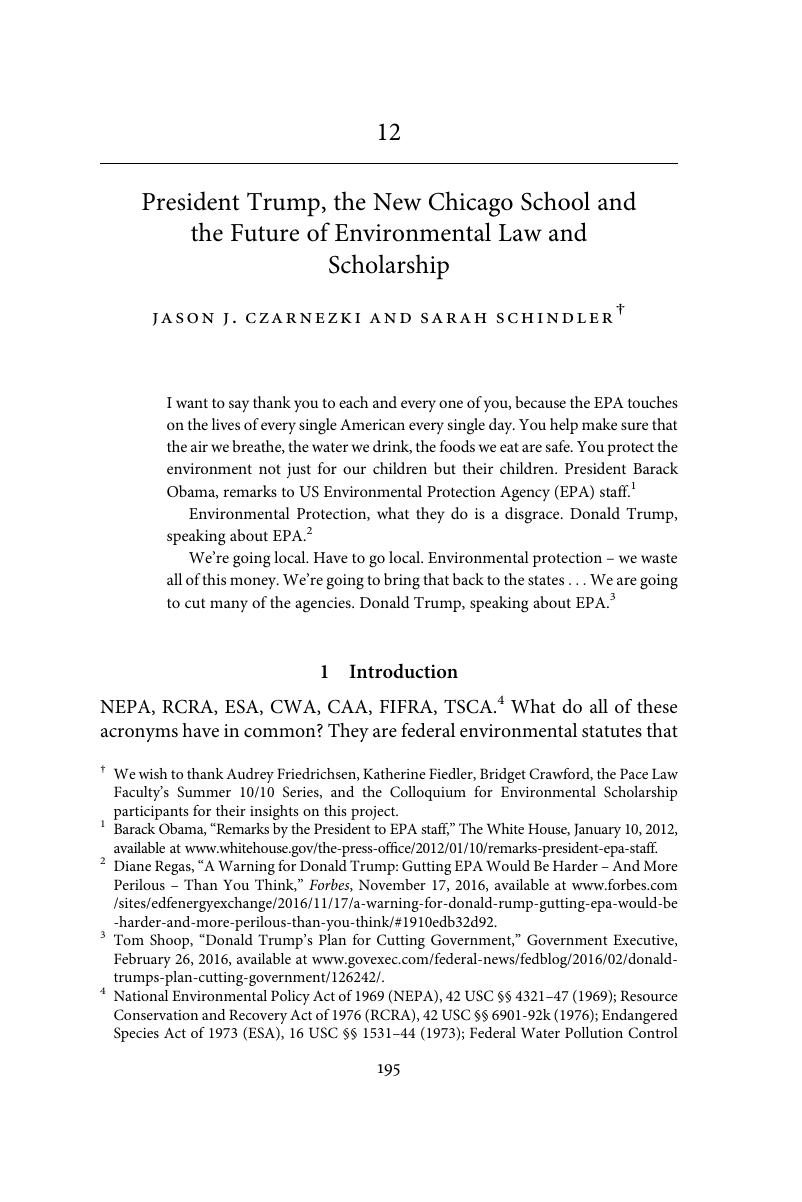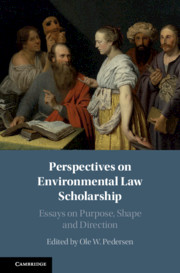Book contents
- Perspectives on Environmental Law Scholarship
- Perspectives on Environmental Law Scholarship
- Copyright page
- Contents
- Contributors
- 1 Introduction
- 2 What Legal Scholarship Can Contribute to Environmental Law
- 3 Back to Basics: Thinking About the Craft of Environmental Law Scholarship
- 4 Environmental Law Scholarship: Systematization, Reform, Explanation, and Understanding
- 5 (Un)Making the Boundaries of Environmental Law Scholarship: Interdisciplinarity Beyond the Social Sciences?
- 6 Crossing Disciplines in Planning: A Renewable Energy Case Study
- 7 Economics and Environmental Law Scholarship
- 8 What Is the Point of International Environmental Law Scholarship in the Anthropocene?
- 9 Reflections on the Future of Environmental Law Scholarship and Methodology in the Anthropocene
- 10 The Unifying Force of Climate Change Scholarship
- 11 Environmental Law Scholarship in a Developing Country – An Alternative Discourse
- 12 President Trump, the New Chicago School and the Future of Environmental Law and Scholarship
- 13 EU Environmental Law and European Environmental Law Scholarship
- 14 The Culture of Environmental Law and the Practices of Environmental Law Scholarship
- Index
- References
12 - President Trump, the New Chicago School and the Future of Environmental Law and Scholarship
Published online by Cambridge University Press: 19 October 2018
- Perspectives on Environmental Law Scholarship
- Perspectives on Environmental Law Scholarship
- Copyright page
- Contents
- Contributors
- 1 Introduction
- 2 What Legal Scholarship Can Contribute to Environmental Law
- 3 Back to Basics: Thinking About the Craft of Environmental Law Scholarship
- 4 Environmental Law Scholarship: Systematization, Reform, Explanation, and Understanding
- 5 (Un)Making the Boundaries of Environmental Law Scholarship: Interdisciplinarity Beyond the Social Sciences?
- 6 Crossing Disciplines in Planning: A Renewable Energy Case Study
- 7 Economics and Environmental Law Scholarship
- 8 What Is the Point of International Environmental Law Scholarship in the Anthropocene?
- 9 Reflections on the Future of Environmental Law Scholarship and Methodology in the Anthropocene
- 10 The Unifying Force of Climate Change Scholarship
- 11 Environmental Law Scholarship in a Developing Country – An Alternative Discourse
- 12 President Trump, the New Chicago School and the Future of Environmental Law and Scholarship
- 13 EU Environmental Law and European Environmental Law Scholarship
- 14 The Culture of Environmental Law and the Practices of Environmental Law Scholarship
- Index
- References
Summary

- Type
- Chapter
- Information
- Perspectives on Environmental Law ScholarshipEssays on Purpose, Shape and Direction, pp. 195 - 211Publisher: Cambridge University PressPrint publication year: 2018



